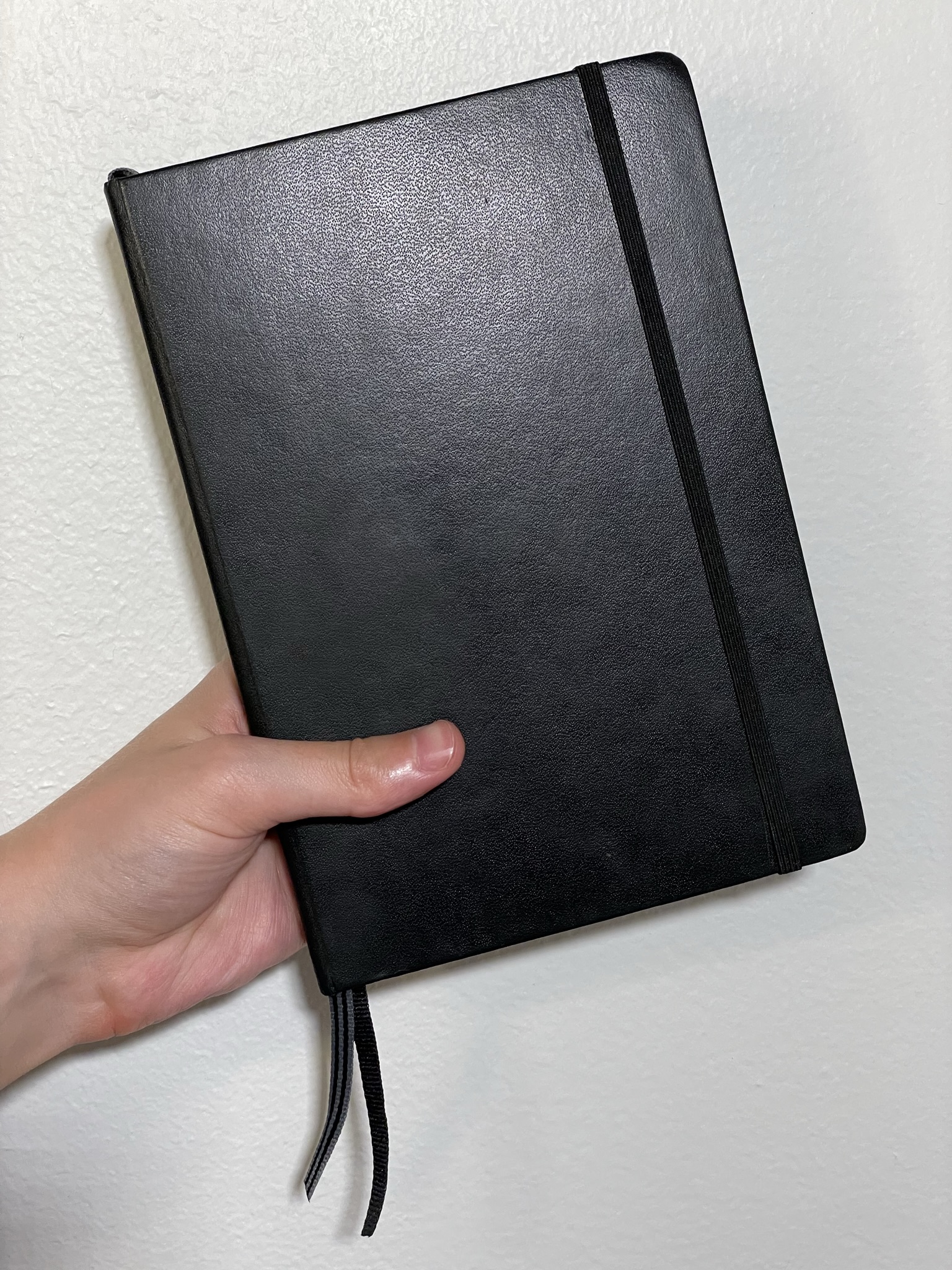Today marks one year of writing a journal on paper every day.

This all started when I re-read The Crow Road by Iain Banks. No spoilers, but a pen-and-paper journal is pretty integral to the plot of this book, and the way Banks describes it as this little window into someone’s life is beautiful.
Naturally, I thought: hey, I could do this.
I actually used to keep a journal in late high school, early college days. A few years ago, I did a lot of informal journaling to process how I felt about the things going on in my life. And while I still do that when I feel like it’ll be beneficial, my current paper journal doesn’t do any of that, at least not on the surface — it’s merely a log of exactly what happened to me on a given day. Sometimes I’ll write something like “so-and-so did this thing and it made me happy,” but I don’t do any investigation into why the thing happened, and why it made me feel the way it did: just that the thing happened.
But even this purely documentararian tool is surprisingly useful, for a whole host of reasons.
It fits extremely well into my routines. Every morning I try to:
- first, write my paper journal, taking however long that takes,
- then spend at least ten minutes organizing my life, making sure my lists look good and planning what I’m going to do for the day,
- then spend at least ten minutes writing for the sake of writing. (I’m currently writing this article during this block of time, for example.)
Taking a moment to reflect on the day before is, for me, invaluable for planning my days ahead. This can be as straight-forward as “oh, I need to follow up on X,” but it can also take the form of “I reacted in a surprising way to Y, I should reflect on that.”
I’m a strong believe in leaning as hard on my tools as possible. I try to “remember” as little as possible, making my tools remember things for me; for example, when I do want to have something truly memorized for instant recall, I use Anki to remind me of it. For this, a journal is a perfect fit: it helps you free up your mind by making sure you briefly touch each memory, and making sure you file it away.
Every now and then, I’ll find myself flipping back through the journal. What was I even doing on this day, one month ago? (It was a busy day, but the most exciting thing is that I had to jump in to action when I noticed the sink at work was leaking — the pump underneath it had broken, spilling everywhere.) I’m really looking forward to also looking back to see what I was doing in years gone by, too.
There are also tiny details from my wedding that I’m really glad I can re-jog my memory about; as these memories naturally blur over time, it’s immensely useful to have a list of touch-points to help me go back and remember everything about that day.
I’m trying to look to the future with this document: I hope that when the world looks different a decade from now, I’ll be able to look back and re-examine the way I participated in it; when big life events continue to happen, it’ll be great to be able to see exactly how they played out; and, it might be morbid, but I even want to view this as part of my legacy, so that maybe someday someone might want to flip through it and see what my life was like.
So, my advice to you: it takes me about five minutes each day to recap the previous day, putting pencil to paper. I hope you’ll consider doing the same.
